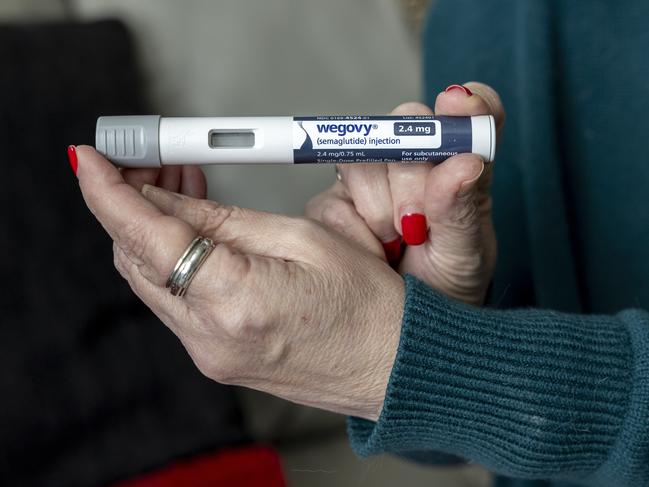Weight-loss drugs ‘could cut risk of dementia’
Semaglutide, which is sold under the brand names Ozempic and Wegovy, was associated with a decreased risk of dementia, according to new research.

Weight-loss drugs could cut the risk of getting dementia by a third, research has suggested.
Scientists at the University of Florida examined data from 90,000 people aged over 50 who had type 2 diabetes.
They found that those taking the new generation of weight-loss injections, known as GLP-1 agonists, were at 33 per cent lower risk of being diagnosed with dementia compared with those on other drugs. They said that semaglutide, which is sold under the brand names Ozempic and Wegovy, was “statistically significantly associated with a decreased risk” of dementia.
Semaglutide was initially developed to treat diabetes but is widely used for weight loss. More than half a million people in the UK take weight-loss drugs.
The study, published in Jama Neurology, found that another class of blood-sugar lowering diabetes drugs called SGLT2s also led to a significant reduction in dementia risk.
Scientists said they were unsure why weight-loss drugs might prevent dementia, but linked it to reduced inflammation in the brain and said the drugs might promote the formation of new brain cells. One million people in the UK have dementia.
Responding to the study, Dr Leah Mursaleen, head of clinical research at Alzheimer’s Research UK, said: “We don’t know yet why these medicines may be offering a protective effect and will need more research to understand how they are affecting the brain.”
A separate study by a team at the University of Galway, also published on Monday in Jama Neurology, evaluated data from 26 clinical trials and found that GLP-1 drugs were “associated with a statistically significant reduction in dementia”. The study looked at trial data from 160,000 people.

Professor Masud Husain, a neurologist at the University of Oxford, said: “For me, these new retrospective analyses suggest that GLP-1 receptor agonists, particularly semaglutide, might reduce the risk of developing dementia in people with type 2 diabetes.
“But we need data from prospective trials to provide stronger evidence. The wider question of whether such drugs might also be protective against dementia in people who don’t have diabetes is a really intriguing one, and the focus of several ongoing clinical trials.”
Dr Richard Oakley, associate director of research and innovation at the Alzheimer’s Society, said: “While both of these studies found a link between GLP-1RAs and reduced dementia risk, only one found SGLT2s, another class of diabetes drug, were also associated with a reduced risk. More research is needed to properly understand how diabetes treatments may lower the risk of dementia by tracking people for longer, especially as they get older.”
Professor Tara Spires-Jones, director of the Centre for Discovery Brain Sciences at the University of Edinburgh and group leader at the UK Dementia Research Institute, said the data was “encouraging” for the potential of using GLP-1RAs to lower dementia risk in people with diabetes.
However, she added: “It is important to note that these drugs do have side-effects and that they are not guaranteed to prevent dementia.
“The studies had important limitations, including a relatively short follow-up time. Future work will be important to understand how risk factors like diabetes and obesity increase risk of dementia to develop effective treatments and prevention strategies.”
The Times




To join the conversation, please log in. Don't have an account? Register
Join the conversation, you are commenting as Logout